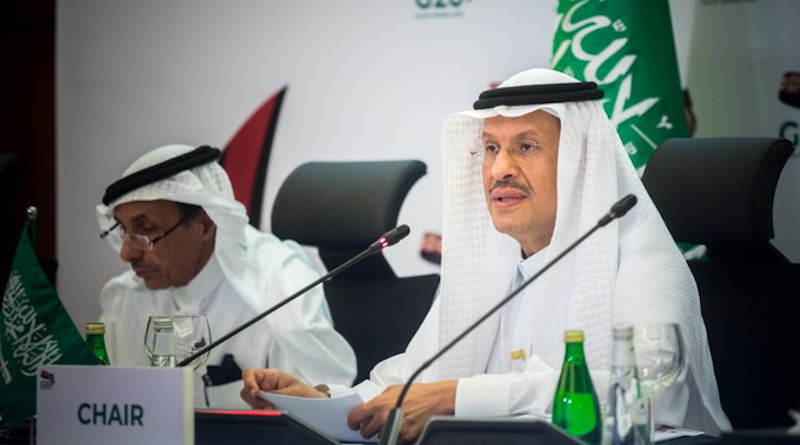Saudi Energy Minister: Kingdom Will Cut Oil Production Further If Necessary
By Arab News
By Frank Kane
Saudi Arabia can reduce its oil output even further if the global economy requires it and other producers do the same, the Kingdom’s energy minister said on Monday.
“Flexibility and pragmatism” would govern oil policy, Prince Abdul Aziz bin Salman said, as markets digested Sunday night’s historic agreement by the OPEC+ alliance led by Saudi Arabia and Russia to cut production by a record amount.
Brent crude, the Middle East benchmark, gyrated as traders took in details of the deal, which will take 9.7million barrels of oil a day off global markets from next month. It settled at just under $32, barely changed on the day..
“We have to watch what is happening with demand destruction and demand improvement, depending on how things evolve,” the minister said. Oil experts estimate that about 25 million barrels per day of demand, about a quarter of the total, have been lost because of the impact of the coronavirus on global economies.
Output cuts could eventually reach about 19.5 million barrels after non-OPEC+ reductions were factored in, along with purchases for strategic reserves, Prince Abdul Aziz said. “We are still dealing with uncertainty related to the virus and its impact. The will is there and the structure is there.”
The prospect of even deeper cuts was also raised by US President Donald Trump. “The number that OPEC+ is looking to cut is 20 million barrels a day, not the 10 million that is generally being reported,” he said.
OPEC+ sources said natural reductions in output were under consideration by non-OPEC+ countries such asthe US, Canada and Norway. Further OPEC+ cuts are unlikely before the alliance’s next meeting in June.
The repercussions of Sunday’s historic agreement continued to reverberate around the global oil industry. Saudi Aramco announced its pricing structure for May, reflecting demand and supply fundamentals, under which it will offer customers in Asia the cheapest oil in many decades.
Purchasers in China, India and Japan will receive discounts of up to 5.5 per cent on market prices. European rates are virtually unchanged, but American customers, a decreasing proportion of Aramco’s exports, will be charged a premium of up to 4.2 per cent.
“Asia is the main battleground in the international oil business. It looks like Aramco is content to stay out of the US for a while,” one oil expert said.

